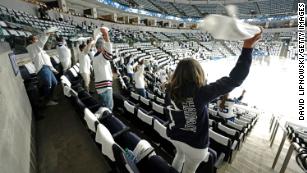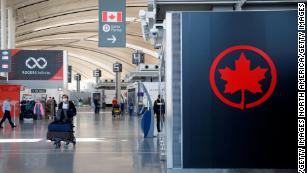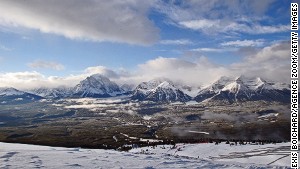Ripped off? Why the EU is paying a premium for new Covid shots

File photo dated 19/02/21 of a Pfizer/BioNTech Covid-19 vaccine being prepared.
The European Union has agreed to pay a premium on new orders of Covid-19 vaccines because it is requiring tougher terms to be met, European officials said, as the bloc tries to protect supplies after a rocky start to its vaccination campaign.
The higher price is less than the US has agreed to pay in its latest order in July.
On Sunday, the Financial Times reported the EU has agreed to pay Pfizer and BioNTech €19.50 ($23.10) for each of their Covid-19 vaccine shots under a contract signed in May for up to 1.8bn doses, up from the €15.50 per dose under two initial supply contracts for a total of 600m vaccines.
The price for Moderna shots went up to $25.50 a dose, the newspaper said, referring to a 300m-vaccine deal, up from $22.60 in its initial deal for 160m jabs.
EU lawmaker Tiziana Beghin, a member of Italy’s ruling 5-Star party, said the EU was being been ripped off.
It’s inexplicable,” she said.
Moderna’s price is still at the lowest end of the $25-$37 range indicated by the company last year, but Pfizer and BioNTech had previously said prices would be lower for bigger-volume deals.
Others said there were good reasons to pay more, and that circumstances had changed greatly from when initial deals were struck with drugmakers last year.
France’s European affairs minister Clement Beaune told French radio station RFI that the likely higher prices were still under negotiation, and were the result of stricter clauses on variants, production, and deliveries.
One European official familiar with negotiations with vaccine makers said the value of the drugmakers’ shots had risen since evidence had emerged of their efficacy and of the positive impact they had on helping the economy to recover from a pandemic-induced recession.
“Several factors played a role,” the official said, speaking on condition of anonymity.

All the vaccines used in Europe have been shown to have a beneficial impact, but those made by AstraZeneca and Johnson & Johnson have faced restrictions on their use in the EU because of concerns they can in rare instances lead to blood clots.
Those two vaccine makers have also suffered supply problems, which in the case of AstraZeneca have led to legal challenges by the EU.
While the bargaining power of Pfizer/BioNTech and Moderna has increased, additional EU demands are likely to raise the costs of making and delivering vaccines.
A spokesman for Pfizer declined to comment on the European prices, but said the latest contract with the EU was different from the initial ones, including on matters concerning production and delivery.
Moderna did not respond to a request for comment.
The European Commission, which co-ordinates negotiations with vaccine makers together with EU governments’ representatives, also declined to comment, citing confidentiality clauses.
Earlier this year, lawmakers, media, and some analysts criticised the bloc for paying too little for the early supplies of vaccines, saying that had contributed to initial delays in the vaccination drive.
“It’s easy to criticise the EU because it spends little and late or because it spends too much,” said Giovanna De Maio, non-resident fellow at the Brookings Institution, a US research group.
"Reality is much more complicated, and perhaps it is correct to give priority to access to vaccines rather than costs given the pace at which the Delta variant is spreading,” she added, referring to the more transmissible variant that was first detected in India.
On July 23, Washington bought an additional 200m vaccines from Pfizer at a price of $24 a dose (€20.10), the company said, up from $19.50 the US paid for its first 300m shots.
Pfizer said the higher US prices reflected investment needed to produce, package, and deliver new formulations of the vaccine, as well as extra costs in producing smaller pack sizes suited to “individual provider offices, including paediatricians”.
When the EU agreed its third supply deal with Pfizer in May for up to 1.8bn doses, the commission said the new contract required the vaccines to be made in the EU and the essential components to be sourced from the region.
In its first supply deals, the EU had required that only vaccines were made in the EU, not their components.
Concentrating production in Europe can help guarantee supply now that production lines are well established and there is less need for leeway, but it is also likely to increase costs.
The EU Commission also said in its statement that under the new contract “from the start of the supply in 2022, the delivery to the EU is guaranteed”, whereas under the first contract Pfizer was only required to make its “best reasonable efforts” to ship pre-agreed volumes by set deadlines.
Pfizer has so far respected its commitments to the EU, and has delivered slightly more than initially planned in the first quarter of the year.
Another big change since the early contracts is the emergence of variants and concerns that vaccines may not be effective against them.
EU officials said governments could refuse to buy shots that did not protect against variants, while companies will be expected to quickly adapt their vaccines, potentially at a significant cost.
Reuters

:no_upscale()/cdn.vox-cdn.com/uploads/chorus_image/image/69680770/gone_home_hero.0.jpg)

/cdn.vox-cdn.com/uploads/chorus_asset/file/7456055/gone_home.jpg)
/cdn.vox-cdn.com/uploads/chorus_asset/file/22762456/467522107.jpg)










